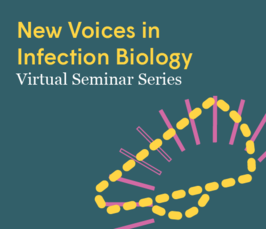Identification of immune dysregulation triggered by SARS-CoV-2 infection in patients with diagnosed Long COVID
New Voices in Infection Biology
- Date: Feb 16, 2022
- Time: 04:00 PM (Local Time Germany)
- Speaker: Benjamin Krishna
- Department of Medicine, University of Cambridge
- Location: Zoom video conference
- Host: Lyn Lim (Majer Lab)
- Contact: vseminars@mpiib-berlin.mpg.de

If you are interested in joining the seminar, please contact: vseminars@mpiib-berlin.mpg.de
Once registered, you will receive a zoom conference link 30 mins before the talk starts - please sign in using your full name.
Talk abstract:
Long COVID is the signs and symptoms that develop during or after an infection consistent with COVID-19, that continue for more than 12 weeks and are not explained by an alternative diagnosis. Long COVID is as yet poorly understood and difficult to diagnose or treat. An understanding of the molecular causes of Long COVID would help inform both diagnoses and future treatment options for patients and are therefore urgently required. We used a highly sensitive FluoroSpot assay for two different purposes: to determine whether patients had previously been infected with SARS-CoV-2 and to detect changes in their immune system causing Long COVID. We found that IL-2 responses by T cells towards SARS-CoV-2 nucleocapsid and membrane proteins could predict past infection in the majority of those with Long COVID, with better sensitivity than antibody assays. We also found that those with Long COVID showed spontaneous IFN-γ production, which had likely been triggered by initial infection and failed to resolve. We identified that the IFN-γ is produced by CD8+ T cells in a CD14+ cell-dependent manner, suggesting antigen presentation as a causal mechanism for IFN-y production. This work suggests that persistence of SARS-CoV-2 antigens in some patients may be causing Long COVID and highlights IFN-γ production as a biomarker for Long COVID to aid in diagnostics, which could inform future treatments.